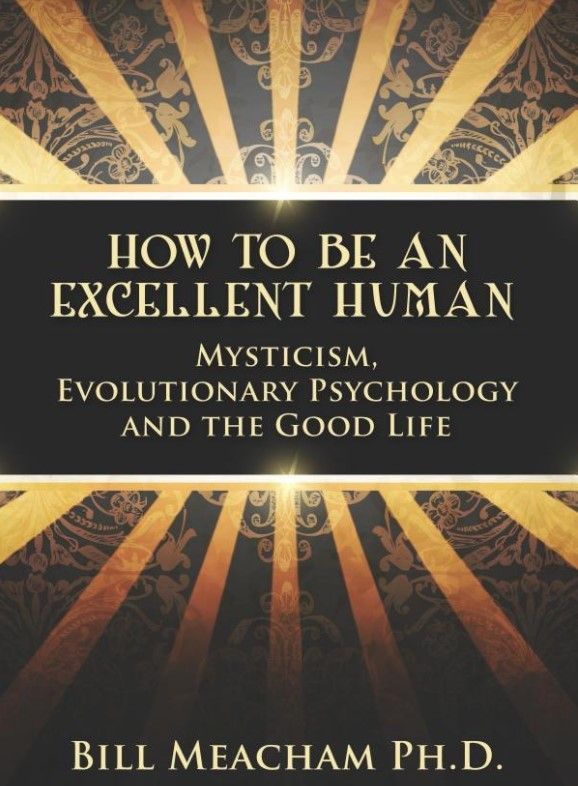Arguing For God
Committed believers should be embarrassed by the various arguments philosophers make for the existence of God, as most are fallacious sophistries. A recent article in Philosophy Now magazine by William Lane Craig helpfully summarizes eight of them for us.(1) (In what follows, I summarize Craig’s summary, so if you want to pursue any of them further, more research is advised.)
First, we need to know what these arguments mean by the term “God.” Richard Swinburne gives an excellent definition:
By a ‘God’ [a theist] understands something like a ‘person without a body (i.e. a spirit) who is eternal, free, able to do anything, knows everything, is perfectly good, is the proper object of human worship and obedience, the creator and sustainer of the universe.’(2)
[‘God’ means] a person without a body (i.e., a spirit), present everywhere, the creator and sustainer of the universe, a free agent, able to do everything (i.e. omnipotent), knowing all things, perfectly good, a source of moral obligation, immutable, eternal, a necessary being, holy, and worthy of worship.(3)
Such a being is sometimes called the Personal OmniGod, as He (the OmniGod is most often referred to as male) is omniscient (all-knowing), omnipotent (all-powerful), omnipresent (present everywhere) and omnibenevolent (all-good).(4) For Craig, who writes approvingly of a renaissance of Christian philosophy, this is what the term “God” means.
In the first of his eight arguments, Craig says that God is the best explanation for why anything exists. He says the existence of the universe, the totality of spacetime reality, is analogous to a ball, a human-made object, in the woods. One wonders how the ball came to be there as one wants to know how the universe came into existence. But the two are not analogous. We recognize the human-made object against the background, the surrounding context, of a natural environment that is not human-made. The universe does not have a surrounding context, as it is, by definition all that exists. Hence, the analogy fails.
In argument 2, Craig asserts that God best explains the universe's origin. He says the universe must have had a beginning, and he wants to know what brought the universe into being. He argues for a cause “outside the universe itself.” But (a) there can be nothing outside the universe itself because, by definition, the universe is all that exists; and (b) there can be no cause before the beginning of the universe because the concept before the beginning is self-contradictory. The beginning is “a spacetime boundary,” as Craig says, meaning it is the beginning of time itself. There can be no before because if there were, it would mean that what we took to be the beginning was not the beginning. It is meaningless to assert a cause before time itself.
Argument 3 asserts that the uncanny applicability of mathematics to the physical world requires us to assume a divine creator. Perhaps so; I do not have an explanation. But even if mathematics is a reflection of ideas in the mind of God, we have no warrant to assume that such a God has any personal interest in our lives. Indeed, mathematics is the epitome of impersonality, being the same for every competent practitioner.
In argument 4, Craig contends that the fine-tuning for the life of the various constants and arbitrary quantities found in the universe is so highly improbable that intelligent design must have put them into place. This contention is a variant of the Anthropic Principle that observations of the physical Universe must be compatible with the conscious life that observes it. (5) Some, Craig included, think that the improbability of the universe just so indicating that something other than mere chance is at work. The idea seems plausible, but there are several objections.
First, the probability of the universe being exactly as we find it to exist is 100%. The concept of probability applies only to the future, which has not yet taken place. It is fallacious to apply it to the present.
Second, we can certainly imagine ourselves at some point in the past, considering the probability of the present being what it is, and its probability would indeed be quite tiny. But if what is now present had become something else, the probability of that alternate present from the point of view of the past would be equally tiny, and its probability from the alternate present itself would be equally 100%. The odds against each of the many possible universes are equally astronomical, yet one of them must be the actual universe. No matter how the present turns out, we do not need to posit a supernatural intelligent designer to account for it.
Third, being alive and able to observe the universe shows that we are the result of a selection bias: only in a universe capable of supporting life will there be living beings who can observe any such fine-tuning. As such, it is entirely unremarkable that we find the universe’s fundamental constants to be within the narrow range compatible with life.
In argument 5, Craig asserts that God is the best explanation of intentional states of consciousness, that is, of mind. “Intentionality” is a philosophical term for the “aboutness” of being conscious. When we are conscious, we are always conscious of something; when we think, we always think about something. There is no need to posit God to explain this state of affairs. Craig’s argument merely rehashes the mind-body problem. He assumes that mind and body are two separate categories of existence; hence, he needs a theistic assumption to unite them. A different metaphysical assumption, panpsychism, assumes that everything has both an aspect of objectivity and an aspect of subjectivity; hence it is not surprising that intentional states of consciousness exist. The relevant argument is between dualism and panpsychism, not between theism and atheism.
In argument 6, Craig asserts that God is the best explanation for the existence of objective moral values and duties. But there is reason to believe that moral values and duties do not exist objectively in the way physical objects and perhaps mathematical objects do but are instead socially constructed. If they don’t exist independently of us, there is no need to posit a theistic explanation. The relevant discussion is about the nature of morality, not about theism and atheism.
In argument 7, Craig restates Anselm’s ontological argument for the existence of God, that we must conceive of God as existing because (a) God is the greatest conceivable being and (b) an existent being is greater than a non-existent being, so (c) we must conceive of God as existing. However, the ontological argument fails to consider that what we can conceive does not determine what actually exists. To say that we must conceive of God as existing is to assert something about our conception, not about what exists apart from our conception. (There is much more to be said about Anselm’s argument. See Wallace, “The Ontological Argument,” for a good summary.)
Six of the eight arguments are totally fallacious, and one, argument 3, implies at best, an impersonal deity, not a Personal OmniGod. That leaves argument 8.
Argument 8 is the only one that makes any sense for the existence of the OmniGod as traditionally conceived: a being who is all-powerful, omniscient, all-good and external to us but intimate enough to care about us. If you have an experience of such a God, says Craig, you are justified in believing in God. For the person who has had a personal experience of God, arguments such as one through seven are, at best, intriguing intellectual puzzles. But for one who has not had a personal experience of God, even argument 8, as Craig himself notes, is no argument at all.
Please note that the fact that you can’t prove the existence of a Personal OmniGod does not prove that such a being does not exist. The absence of proof for something is not proof of its absence.(6) The arguments against the existence of God also fail, but that is a topic for another time. So a Personal OmniGod might indeed exist.
But the idea seems chimerical. There are numerous objections, and even though theologians have concocted answers to them, they seem to have intuitive force. If God is all-powerful, can He make an object too heavy for Him to lift? If God is all-benevolent, why does He allow such evils as genocide and mass starvation in His world? And so on. (7) To the believer, these objections are as useless as the alleged proofs are to the unbeliever.
We all, believers and unbelievers alike, want intellectual coherence. If you have had experiences that lead you to believe that a Higher Power exists, manifests itself in a person-like way, and has some benevolent interest in you, then you have some right to believe these things. But that Higher Power need not be conceived as a Personal OmniGod; it could be conceived as the organic will of an animated universe.
Craig says, “For those who listen, God becomes a personal reality in their lives.” A more useful question than these intellectual puzzles would be how to tell when you hear a voice that seems to come from God, whether it really does so or is merely a delusion.
—
NOTES
(1) Craig, “Does God Exist?”
(2) Swinburne, page 1.
(3) Swinburne, page 2.
(4) See, for instance, Wikipedia, “Omnibenevolence;” Kulikovsky; and Sutherland.
(5) Wikipedia, “Anthropic principle.”
(6) Wikipedia, “Argument from ignorance.”
(7) Harrison, “Arguments for and against the Existence of God.”
References
Craig, William Lane. “Does God Exist?” In Philosophy Now magazine, Issue 99, November/December 2013, pp. 6-9. Online publication http://philosophynow.org/issues/99/Does_God_Exist as of 27 February 2014. Archived at http://www.bmeacham.com/whatswhat/OP/Craig_DoesGodExist.pdf.
Harrison, Paul. “Arguments for and against the Existence of God.” In F. Heylighen, C. Joslyn and V. Turchin (editors): Principia Cybernetica Web (Principia Cybernetica, Brussels). Online publication http://pespmc1.vub.ac.be/GODEXIST.html as of 3 March 2014.
Kulikovsky, Andrew S. “God’s ‘omni’ Attributes.” Online publication http://hermeneutics.kulikovskyonline.net/hermeneutics/omni.pdf as of 28 February 2014.
Sutherland, Mike. “The ‘omnis’ of god.” Online publication http://www.christian-apologetics-resources-and-education.com/God-Is-Omni.html as of 28 February 2014.
Swinburne, Richard. The Coherence of Theism. Oxford: Oxford University Press, 1977, 1993.
Wallace, Meg. “The Ontological Argument.” Online publication http://www.unc.edu/~megw/OntologicalArg.html as of 28 February 2014. Archived here: https://bmeacham.com/whatswhat/OP/OntologicalArg.pdf.
Wikipedia. “Anthropic principle.” Online publication http://en.wikipedia.org/wiki/Anthropic_principle as of 3 March 2014.
Wikipedia. “Argument from ignorance.” Online publication http://en.wikipedia.org/wiki/Argument_from_ignorance as of 3 March 2014.
Wikipedia. “Omnibenevolence.” Online publication http://en.wikipedia.org/wiki/Omnibenevolence as of 28 February 2014.

How To Be An Excellent Human
Mysticism, Evolutionary Psychology and the Good Life by Bill Beacham, Ph.D.

